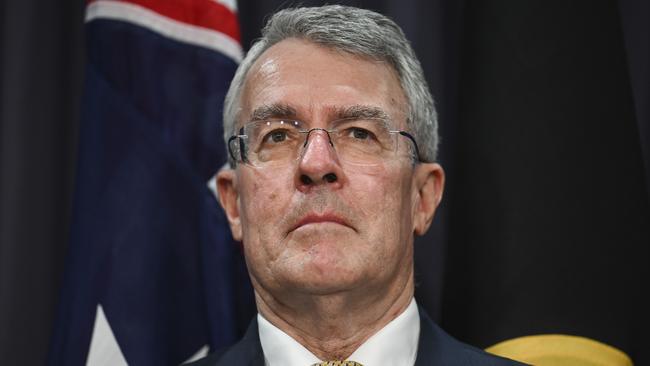ALP ‘wants one rule for itself’ on privacy
Privacy experts, teal independents and the Greens have lashed Labor’s decision to keep an exemption for political parties in the Privacy Act.

Privacy experts, teal independents and the Greens have lashed Labor’s decision to retain an exemption for political parties in the Privacy Act, accusing the government of “creating one rule for themselves and another rule for everyone else”.
The criticism comes as peak business groups noted that while the government’s “measured approach” to privacy reforms, announced this week, was welcome, the changes risked chilling innovation and adding additional costs to small businesses.
Labor agreed outright to 38 of the 116 proposals in the 313-page review of Australia’s Privacy Act, which started in 2020 under the previous government, but only “noted” the recommendation for the exemption on political parties to be removed from the legislation.
Curtin independent Kate Chaney said Australians “deserved better” from the government in its response to the privacy review.
“Australians are sick of seeing political parties creating one rule for themselves and another rule for everyone else. If small businesses have to comply with the Privacy Act, political parties should too,” she said.
“People are shocked to find out that political parties send voters deceptive postal vote applications to harvest their personal information. If this government wants to rebuild trust in our political processes, it must stop data harvesting by political parties.”
Goldstein MP Zoe Daniel said the government’s readiness to make privacy laws fit for purpose for the 21st century was encouraging, but she was disappointed Labor had largely exempted politicians, political parties and media organisations.
“There should not be one rule for regular citizens and corporations and special privileges applied to politicians, in particular,” she said. “The government should not be caving into special interests, no matter how scared it is of their power and influence, when they have done nothing to deserve such special treatment.”
Labor agreed or agreed in principle to all recommendations in the review that related to children’s online privacy, which was welcomed by independents including Sophie Scamps and David Pocock, along with Greens senator David Shoebridge.
But Senator Shoebridge said there were “a number of significant blind spots in the government’s approach to privacy”, including the refusal to allow adults to opt out of targeted advertising and keeping exemptions for politicians in place. “The lack of action on political parties’ privacy obligations was a missed chance for reform,” he said. “There are distinct and different needs for privacy settings for political parties but this doesn’t mean there should be a broad exclusion from privacy rules.”
While consumer advocacy organisation Choice said all businesses needed to be captured by the privacy regulation no matter their size, the Australian Industry Group warned the intention to remove exemptions for small businesses with turnovers of less than $3m could have unintended consequences.
“Ai Group supports the need to provide the public with confidence that their privacy and their data is being handled safely and responsibly. However, over-regulation has the potential to chill innovation and add costs to business,” chief executive Innes Willox said.
A spokesman for Attorney-General Mark Dreyfus said the political exemption had been introduced “to encourage freedom of political communication and enhance the operation of electoral and political processes in Australia”.
He said the government had been consulting with small business and made clear “any change will only come after further extensive discussions with the sector, a full impact analysis, the development of an appropriate support package and a transition period to ensure small businesses have reasonable time to prepare”.
The Australian understands compensation for businesses impacted by the change is being considered by government, but Mr Willox said support could not be regarded as a “set-and-forget” proposition and businesses would need help adapting to any changes over the long term.
UNSW professor of law and founding co-director of the Australasian Legal Information Institute, Graham Greenleaf, said the government’s response to the review was “exceptionally disappointing”.








To join the conversation, please log in. Don't have an account? Register
Join the conversation, you are commenting as Logout